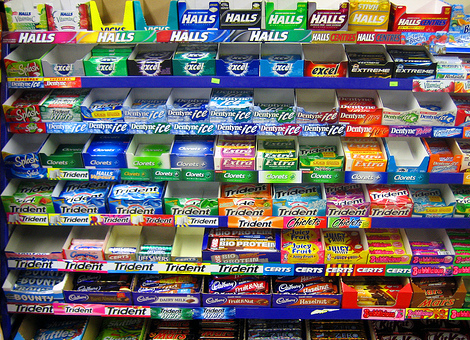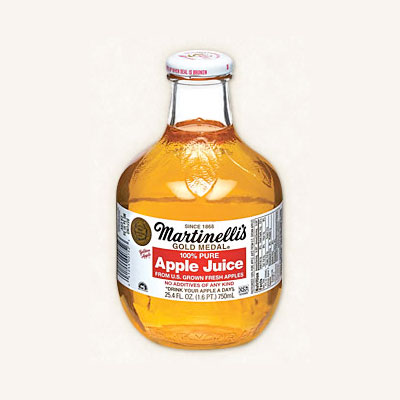The Truth About Chewing Gum

One of America’s favorite passtimes and quick fixes for bad breath, chewing gum is a daily ritual for millions of americans. Ever wonder what is in the gum you are chewing or what effect it has on your health?
Quick Stats
- More than 100,000 tons of chewing gum being consumed every year.
- Every year over 374 trillion sticks of chewing gum are made.
- In the next 5 years, over 1 million metric tones of chewing gum will be produced.
- The Chewing Gum Industry is profitable market. The world’s chewing gum industry is estimated to be worth approximately US $19 billion.
Potential Health Benefits of Chewing Gum.
Chewing gum improves memory

Some suggest that chewing gum can help in improving memory and enhance cognitive powers. Research studies show that people who chewed throughout standardized tests produced significantly better scores than people who did not. Some attribute this to an increase in the stimuli produced in the area in our brain linked to memory, the hippocampus, when you continuously move your jaw. Chewing gum can also increases blood flow to the brain. Some studies have reported that blood flow to the brain increases by as much as 25 to 40 percent during gum chewing. Also the act of chewing speeds up our heartbeat and blood pressure just enough to wake up both left-and right hemispheres to work together.
Check out this site for one of the first studies showing actual evidence of this.http://www.newscientist.com/article/dn2039-chewing-gum-improves-memory.html
Chewing gum reduces symptoms of stress
Research has shown that the rhythmic motion of chewing gum has a stress-reducing effect because relaxed and satisfied feelings. Psychiatrists and psychologists believe that chewing gum can help reduce tension and help to release nervous energy. Chewing gum may provide an outlet for frustration and irritation while also increasing alertness and concentration.
For more on this http://www.medicalnewstoday.com/releases/119826.php
Chewing gum helps to manage weight

With a low-calorie count (5 to 10 per serving), chewing gum is an inexpensive snack. According to some studies, adults who chewed gum ate 36 calories less of the snack than adults who did not chew gum. Both regular and sugar-free chewing gum helped adults to eat less by helping to curb their appetite. The physical act of gum chewing may help to reduce your cravings for high calorie snacks. Some reports show that chewing gum can burn around 11 calories per hour. (IE not to be used in place of actualy exercise)
Chewing gum improves digestion
Chewing gum helps to improve intestinal motility and also helps to increase saliva flow which promotes more frequent swallowing. This helps to prevent reflux of acid from the stomach back into the throat.
Chewing gum improves oral health
The results of scientific research demonstrate that chewing gum is good for oral health and teeth specifically. Chewing gum increases saliva, which is the most important component of oral health and powerful protector of the oral cavity. Stimulated saliva corrects a potentially harmful environment using its high concentration of buffers, minerals and antibacterial components. That helps to flush sugars, food debris and decay-causing acids out of the mouth. Chewing gum also freshens breath, whitens teeth by reducing stains and preventing stains from accumulating and reduces plaque.
Potential Health Risks of Chewing Gum

The basic make up of gum: gum base, softeners, sweeteners and flavorings. Ever wonder what makes up the sweetener and flavoring part?
The Ingredients
Sweeteners are added to gum to give it that sweet flavor. Those ingredients are usually sugar, corn syrup and even beet juice. Sugar is probably the healthiest off all sweeteners. Sweeteners such as xylitol, sorbitol, mannitol and aspartame are also used, which have been linked to several long-term health effects that are also found in diet sodas.
Some gum ingredients are suspected to be carcinogens or have been linked to various health conditions. Sugar can cause cavities and lead to health issues such as diabetes, while aspartame, a popular artificial sweetener, has been linked to cancer, diabetes, and neurological disorders. Chewing gum containing such ingredients can have dangerous and long-lasting health effects.
What about Sugar-less or Sugar-free gum?
Sugar-free chewing gum has a number of dental benefits. Sugar free chewing gum doesn’t cause tooth decay. It demineralises tooth enamel and has an antimicrobial effect. Those who chewed sugar-free gum after eating had fewer cavities than those who did not. HOWEVER, Sugar-free gum often contains either aspartame or sorbitol, the first being potentially toxic and increasing your hunger, and the second becoming a dangerous laxative in large doses. For me, it’s very similar to comparing soda to diet soda.
Jaw Related Issues
One of the most common health issues related to chewing gum is muscle fatigue due to overuse of the jaw muscles. This is known to lead to chronic headaches. The action of chewing gum can also cause unnecessary wear on the cartilage in the jaw joint. Frequent gum chewers may be more likely to develop problems in the temporomandibular joint, or TMJ
My suggestion
Most health nuts will advise you to switch to something outrageous like licorice root, parsley, or chewing on a natural tooth pic. I actually believe the benefits outweigh the negatives in terms of chewing gum. I suggest looking for a gum sweetened with erythritol ( a natural sugar alcohol which has recently gained popularity because of its inclusion in a few mainstream stevia based sweeteners),stevia, or lastly xylitol at a natural foods store. Identifying products with no sugar additives or artificial sweeteners is important with all food selections and should not be any different for gum. While it is more expensive, this type of gum is more safe and less likely to cause adverse health effects. Make your pack last twice as long by chewing half a piece a day versus a whole piece.
Thanks for reading and let me know if you have any questions.
From South Bend,




















